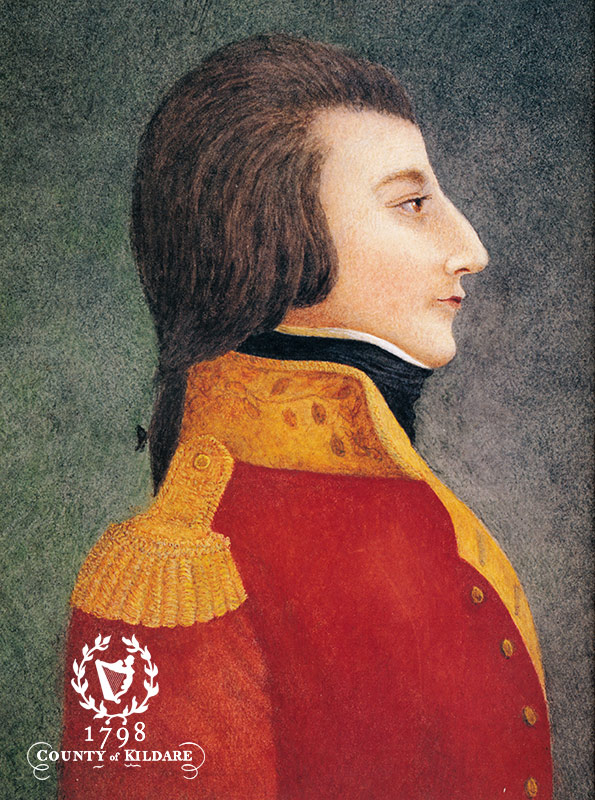Background to Rebellion
Theobald Wolfe Tone
Theobald Wolfe Tone a church of Ireland lawyer, was born in Dublin, probably Stafford Street, now Wolfe Tone Street in 1763. He won a scholarship to Trinity College Dublin and was later called to the Irish Bar but his interests lay in politics. As a founder member of the United Irishmen he believed that it would only be possible to overcome the problems the country faced if Catholic, Protestant and dissenter came together.
The real problem for Tone was the “connection with England”. His political beliefs later evolved into Republican separatism. Through the writing of pamphlets and articles Tone focused his attention on the political inequalities in the political system in Ireland.

His pamphlet, An Argument On Behalf of the Catholics of Ireland achieved wide circulation. The Catholic Committee, a group formed to press for the repeal of the remaining Penal laws appointed Tone as their secretary. A Catholic Convention was held in Taylor’s Hall in December 1792. The Convention presented its demands directly to the London government. The government anxious to maintain the loyalty of the Catholic majority, conceded almost all their demands, except the right of Catholics to sit in parliament.
Following the Catholic Relief bill of 1793, which fell short of full emancipation, Wolfe Tone despaired at the prospect of political reform and sought aid from France. When his views became known he was deported to America where he immediately pursued his aim of securing French military assistance for a United Irish insurrection. His plans were endorsed by his radical friends in Dublin and Belfast.
In 1796 he reached Paris and managed to win endorsement for his ideas within the French Directory. An invasion force of almost 15,000 armed men was sanctioned and set sail from Brittany in December 1796, led by the patron of Wolfe Tone Lazare Hoche. The fleet was dispersed by bad weather before it reached Bantry Bay. Tone, dressed in a French army uniform, was captured and was brought to Dublin where he was sentenced to be hanged. He cut his own throat after his wish to be shot by firing squad was refused. A week later at the age of 35 Wolfe Tone died of his wound. Like other United Irishmen Tone was influenced by the French Revolution with its ideals of Liberty, Equality Fraternity and the Rights of Man.

